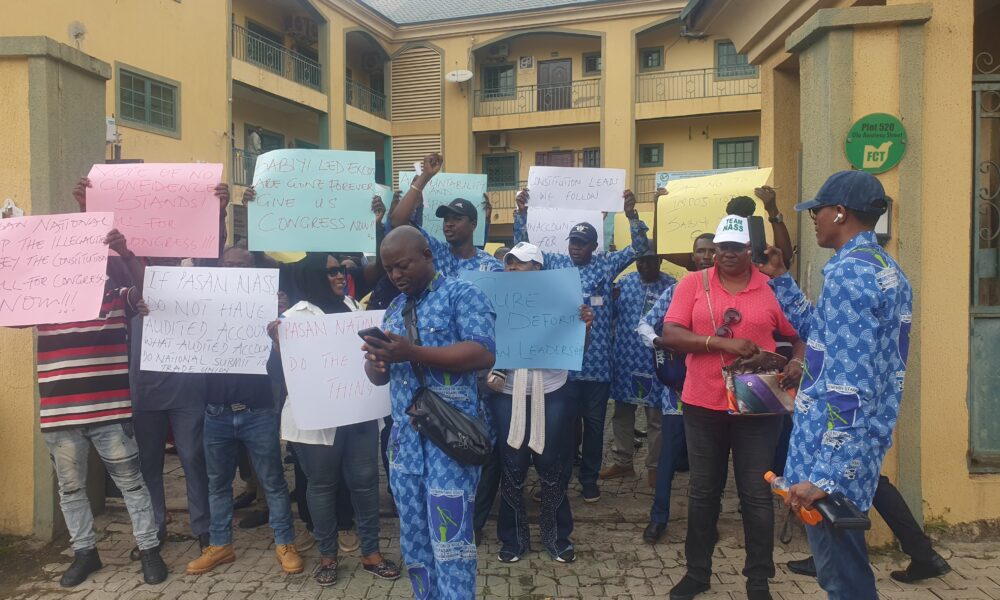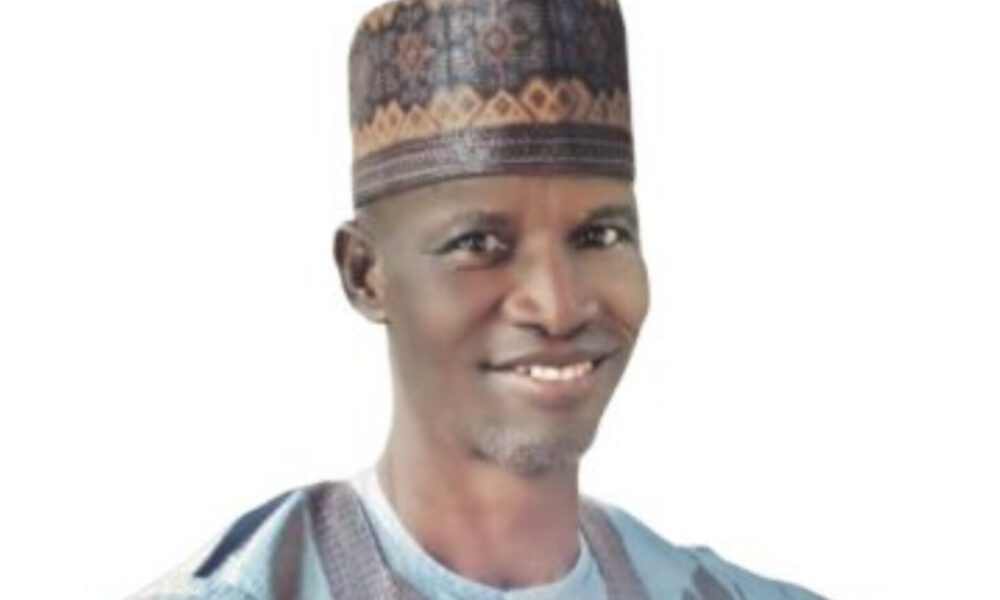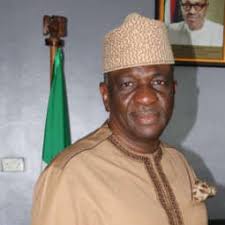The Parliamentary Staff Association of Nigeria (PASAN), National Assembly Chapter is in turmoil over allegations of the mismanagement of ₦3 billion by its leadership, sparking protests at the PASAN National Secretariat in Jabi, Abuja.
The protesting members of the association accused the executive team, led by Sunday Sabiyi, of financial misconduct, unauthorized spending, and failing to prioritize the welfare of PASAN members.

The aggrieved members, who have been raising concerns since 2019, claim that the misappropriated funds include check-off dues, grants, subventions, and revenue from PASAN-owned assets.
The protests, held at the PASAN National Secretariat located at Plot 520, Trow Plaza, Olu’ Awotesu Street, Suite 01, Behind Mr. Biggs, Jabi District, Abuja led to the disruption of businesses in the area, with other tenants forced to close shops due to the tensed atmosphere.
The Protesting PASAN members wielded placards with messages such as “PASAN National do the right thing, CWC stop the illegalities, call for Congress, Stabiyi Led exco is gone forever, give us Congress now, PASAN National stop the illegalities, obey the constitution, call for Congress now, say no to imposition, Sabiyi must go, cure the deformed PASAN leadership.”
They demanded immediate reforms to address what they see as corruption and abuse of power by the Sabiyi-led administration.

Yusuf Abiola, a member of the Association’s Congress Committee, stated that the crisis escalated in mid-2024 when PASAN members expressed outrage over the leadership’s financial practices.
He also accused the leadership of colluding with national and zonal leaders to remove nine executives, known as the G9, from the 14-member leadership team, which sparked widespread discontent and led to a vote of no confidence on July 15, 2024.
Abiola called for the formation of a caretaker committee to oversee the association’s affairs and ensure the welfare of PASAN members.
The protesters have issued a series of demands, including the public recognition of the no-confidence vote, the creation of an interim leadership, and the non-victimization of whistleblowers.
They also called for an audit of PASAN’s financial statements from 2019 to the present.
The accused executives, including Chairman Sunday Sabiyi, Treasurer Samtiya Daniel, and Financial Secretaries Stacy Nwodo and Peter Raph, are under fire for allegedly mishandling ₦3 billion in association funds. PASAN members have given the leadership a 14-day ultimatum, which expired on October 6, 2024, for the implementation of these reforms.

As protests continue, PASAN members are determined to see significant changes that will promote transparency, accountability, and a fair leadership structure within the association.




